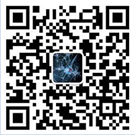

Prof. Ming Chen, Prof. Bin Lai and Prof. Ping Zheng published a paper in Advanced Science.
Context-triggered retrieval of drug withdrawal memories (CTR-DWM) is a major cause of drug relapse. Most studies of the context-triggered retrieval of morphine withdrawal memories (CTR-MWM) have mainly focused on the functional interactions within the central structures of the brain. It remains unknown how an increase in corticosterone, which is an important response under drug withdrawal state, participates in CTR-MWM. The present results show that corticosterone contributes to CTR-MWM; within the basolateral amygdala (BLA), it is the mineralocorticoid receptor (MR), rather than the glucocorticoid receptor (GR), activated by corticosterone that mediates CTR-MWM; MR of BLA neurons projecting to the nucleus accumbens core (BLA→NAcC) mediates CTR-MWM; MR increases presynaptic glutamate release and participates in dopamine D1 receptor -induced increase in presynaptic glutamate release and postsynaptic AMPA (α-Amino-3-hydroxy-5-methyl-4-isoxazolepropionic Acid) currents; MR increases intrinsic excitability of BLA→NAcC neurons during CTR-MWM. These results suggest that corticosterone contributes to CTR-MWM by activating BLA→NAcC neurons through MR pathways, uncovering a link between a systemic hormonal response and a specific CTR-MWM process.
Link: https://doi.org/10.1002/advs.202503409







 Online Appointment
Online Appointment
